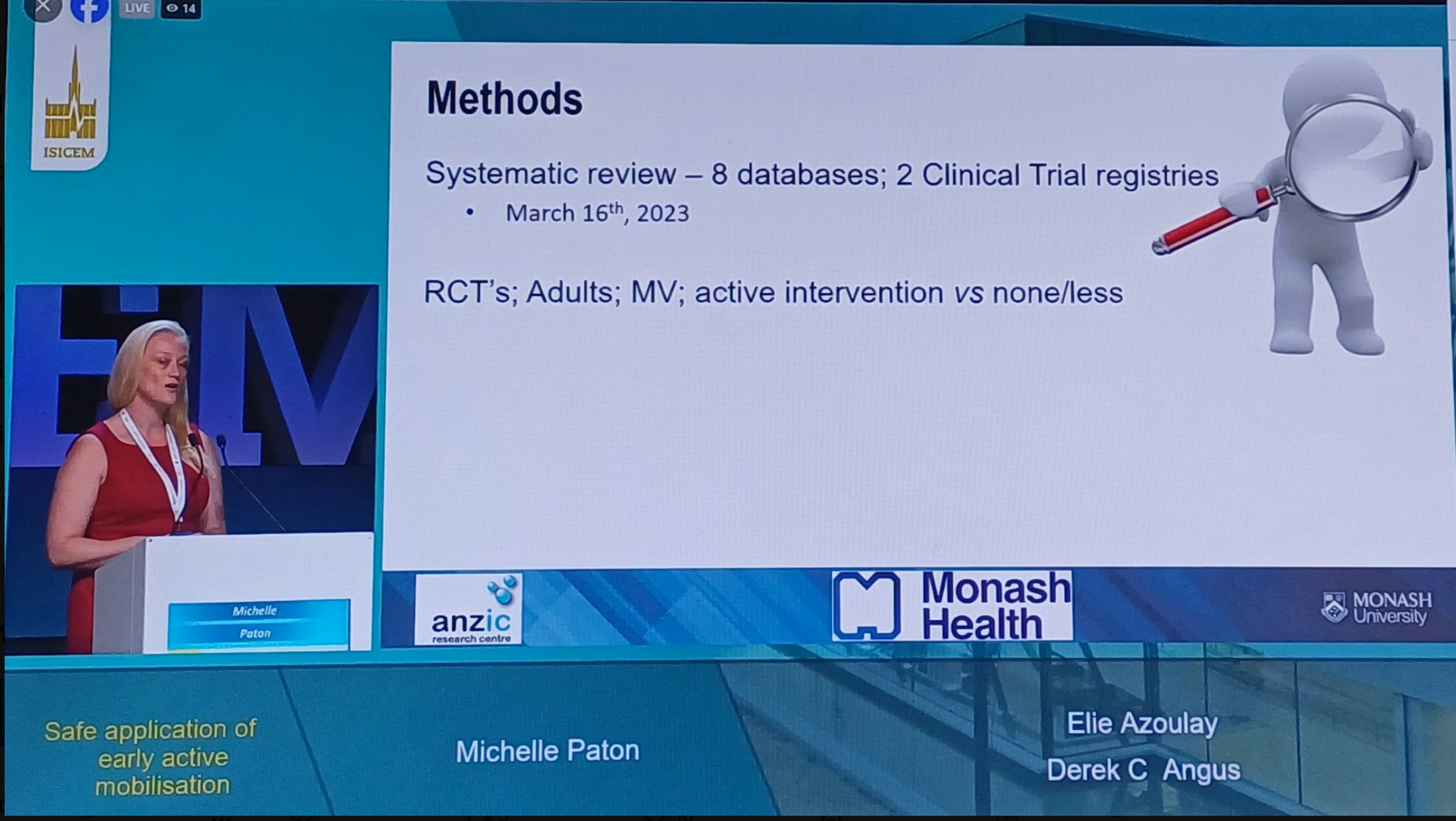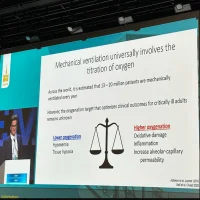Findings from a systematic review on early mobilisation were presetned at #ISICEM24. The findings were just published in Lancet Respiratory Medicine.
Recent clinical practice guidelines have incorporated mobilisation during critical illness. Yet, findings from a significant randomised trial and systematic review suggest a higher likelihood of adverse events and mortality in patients receiving early active mobilisation in the ICU.
A new systematic review was conducted to determine the effects of mobilisation compared with usual care on adverse events and mortality in an acute ICU setting. The study specifically focused on identifying possible sources of harm, including the timing and duration of mobilisation, ventilation status, and admission diagnosis.
Eligible studies included in the review were randomised controlled trials comparing active mobilisation with either no mobilisation or less frequent or intense mobilisation in critically ill adults during or after mechanical ventilation in acute ICU settings. Two authors independently screened reports, extracted data, and assessed bias risk.

The primary outcome was the number of adverse events that occurred during mobilisation, with effect on mortality as the secondary outcome.
After screening 14,440 studies and reviewing 466 full texts, 67 trials involving 7,004 participants met inclusion criteria, with 59 trials contributing to the meta-analysis. Among these studies, 15 (22%) did not mention adverse events, and 13 (19%) reported no adverse events during the trial period.
Overall, mobilisation showed no significant effect compared to usual care on the occurrence of adverse events, with a 2.96% occurrence rate during intervention sessions. Mobilisation also did not affect mortality. Subgroup analysis was limited due to a large amount of unallocated and unanalysed data, rendering the results hypothesis-generating only.
These findings suggest that the implementation of mobilisation in the ICU was associated with a less than 3% likelihood of adverse events and did not lead to increased adverse events or mortality. Therefore, the analysis did not pinpoint any specific aspect of mobilisation implementation that significantly increased harm. These findings offer reassurance to clinicians regarding the safety of this intervention.
Source: The Lancet, ISICEM 2024
Image and Slide Credit: ISICEM










